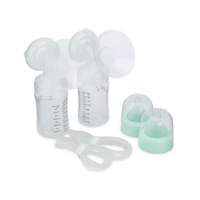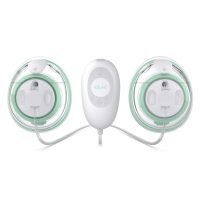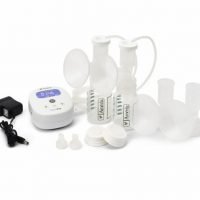When you’re a breastfeeding mother, it’s important to take care of your own nutritional needs to ensure your baby is getting all the essential vitamins, minerals, and nutrients they need to thrive. While a healthy and varied diet is key, there are some foods and drinks you should aim to include and others you should avoid while breastfeeding.
Nutrition best practices for a breastfeeding mom
Eat a variety of foods.
Incorporate a variety of foods into your diet, including fruits, vegetables, whole grains, lean proteins, and healthy fats. That way, you and your baby are getting all the essential nutrients you need.
Hydrate.
Drink plenty of water and fruit juices throughout the day to stay hydrated. Breastfeeding uses a lot of your body’s H20, so it’s important to drink water even when you don’t feel thirsty.
Choose nutrient-dense foods.
Focus on eating foods that are high in nutrients, such as leafy greens, berries, nuts, and seeds. These foods can help support your milk supply and promote your baby’s growth and development. Check out our recent post on the best spring produce to eat while its fresh at the farmer’s market!
Consider taking supplements.
Talk to your healthcare provider about taking a prenatal vitamin, omega-3 fatty acid supplement, or other supplements that may benefit breastfeeding mothers.
Where to practice healthy moderation
Limit caffeine.
Consider keeping your caffeine intake under 300 milligrams per day, as caffeine can pass through breast milk and affect your baby’s sleep and behavior.
Limit alcohol.
While it’s not necessary to completely abstain from alcohol, mothers are recommended to limit their intake to an occasional drink and wait at least 2-3 hours after drinking before breastfeeding. We’ve written more extensively on this with links to research in another post!
Eliminate allergenic foods in some cases.
If you notice that your baby is fussy or gassy after you eat certain foods, talk to your doctor. They may recommend eliminating them from your diet. Common allergenic foods include dairy, soy, wheat, and nuts.
Don’t skimp.
You’ve got a perfectly good reason to eat as much of the healthy stuff as you want (and to sneak in some strawberry shortcake and French toast, too). Whatever you do, though, don’t skip meals. It can lead to low blood sugar, which can affect your milk supply and leave you feeling fatigued and irritable.
Let us support you on your breastfeeding journey.
Every mother and baby is unique, and there is no one-size-fits-all approach to breastfeeding and nutrition. However, by following these general guidelines, you can make informed decisions about what to eat and what to avoid to get the healthiest outcomes for you and your little one. And if you have any questions or concerns about your breastfeeding diet, don’t hesitate to talk to your healthcare provider or a lactation consultant. At Milk N Mamas Baby, we’re also here to support you throughout your breastfeeding journey, providing you with high-quality breast pumps, breastfeeding accessories, and helpful resources. Let us help you make the most of this special time with your baby, and ensure that both of you are getting the nourishment you need.



